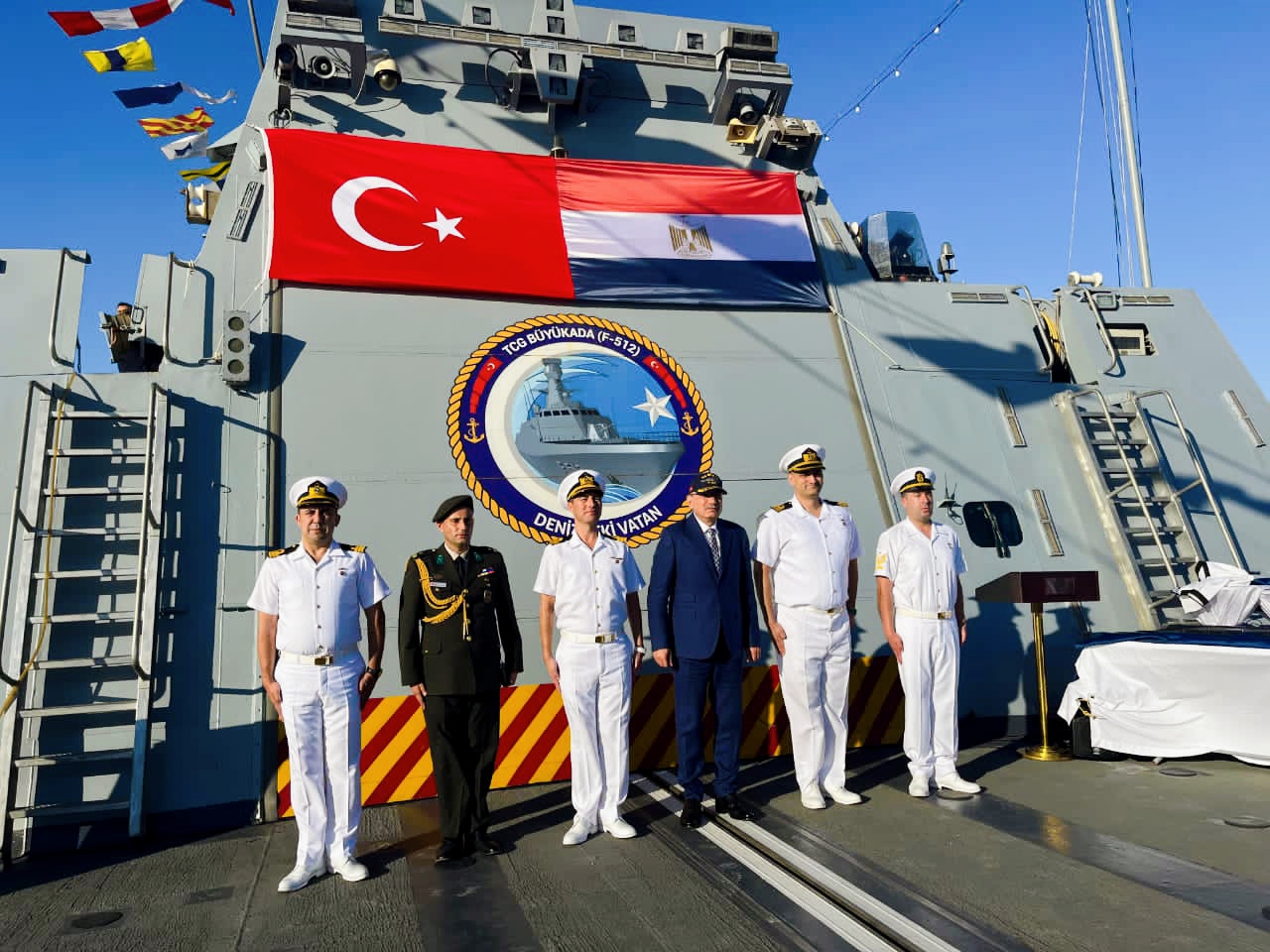In a notable development in regional military cooperation, the Turkish Ministry of Defense announced the resumption of the "Sea of Friendship" exercises between the Egyptian and Turkish naval forces, after a hiatus of 13 years due to political disagreements between the two countries.
The spokesperson for the Turkish Ministry of Defense Zeki Akturk confirmed that the exercises will take place in the eastern Mediterranean region from 22 to 26 September of this year, aiming to enhance security and military cooperation between the two countries and to raise the level of coordination and operational compatibility between their naval forces.
Akturk stated that this step represents a strategic turning point in bilateral relations and reflects the mutual desire to rebuild trust and coordination in a region where geopolitical tensions are increasing.
* Deterrent and Reassuring Messages at a Sensitive Time
For his part, Major General Mohamed Farghaly, a lecturer at the Military Academy for Higher Studies and Strategy, stated in remarks that these exercises come at a highly important time, amid escalating regional conflicts, especially in the Eastern Mediterranean and the Gaza Strip.
Farghaly noted that the exercise sends reassuring messages to the Egyptian people regarding the readiness of the naval forces to defend economic assets in the Mediterranean waters, especially with the increasing threats related to gas resources and maritime areas of influence.
He added:
"The exercise aims to exchange military experiences, familiarize with modern naval operational theaters, and train on protecting the economic zones of the coastal states, which is vital given the current challenges."
Farghaly described the Egyptian navy as "one of the strongest, most trained, and integrated in the Middle East," pointing out that this military cooperation reflects a noticeable improvement in Egyptian-Turkish relations, manifested in high-level visits and multiple agreements in the fields of energy, investment, and trade.
* Strategic Transformations in the Region.. and a Response to 'Israeli Expansionist Delusions'
In this context, the advisor at the Command and Staff College, Major General Osama Mahmoud Kabeer, affirmed that the resumption of these exercises reflects political maturity and strategic awareness of the necessity to build strong defensive coalitions to face current challenges.
Kabeer said:
"The return of the "Sea of Friendship" exercises is a direct result of a radical transformation in Egyptian-Turkish relations, after the exercises were suspended in 2012 due to political disputes."
He explained that the timing of the exercises coincides with serious changes in the regional scene, primarily the ongoing humanitarian disaster in Gaza for nearly two years, and the recent Israeli aggression against sovereign rights on September 9 of this year, in addition to recent Israeli statements regarding what is known as the "Greater Israel State," which claims that part of Eastern Egypt falls within its future borders.
He continued:
"These exercises carry a firm message that the delusions of Israeli expansion are mere illusions that will shatter against the rock of regional defensive alliances and the combat readiness of Arab forces."
Kabeer emphasized that the exercises include a qualitative array of offensive and striking naval vessels, including submarines, advanced surface ships, high-tech air defense systems, and precision-guided munitions, making them the strongest practical deterrent to any threat to national sovereignty or attempts to undermine the capabilities of nations.
* Field Diplomacy and Evolving Relations
The exercises represent an extension of the intensive diplomatic efforts between Ankara and Cairo, which have included reciprocal visits by defense and foreign ministers in recent months, and the signing of economic agreements, most notably in the fields of gas, energy, investment, and trade exchange.
In light of the Egyptian-Turkish race to contribute to resolving the Libyan crisis, and both countries' opposition to any attempt to displace Palestinians or impose a permanent occupation of Gaza, the "Sea of Friendship" exercises come as a new title for transforming relations towards a comprehensive security partnership that transcends past disagreements and responds to the requirements of the changing geopolitical reality.
* In Conclusion:
The "Sea of Friendship" exercises are a practical test for restoring trust between two pivotal countries in the Middle East, and a political and military message at the same time:
That the security of the Mediterranean is no longer an open arena, but a domain shared by sovereign nations to protect their interests and capabilities in the face of emerging threats.

